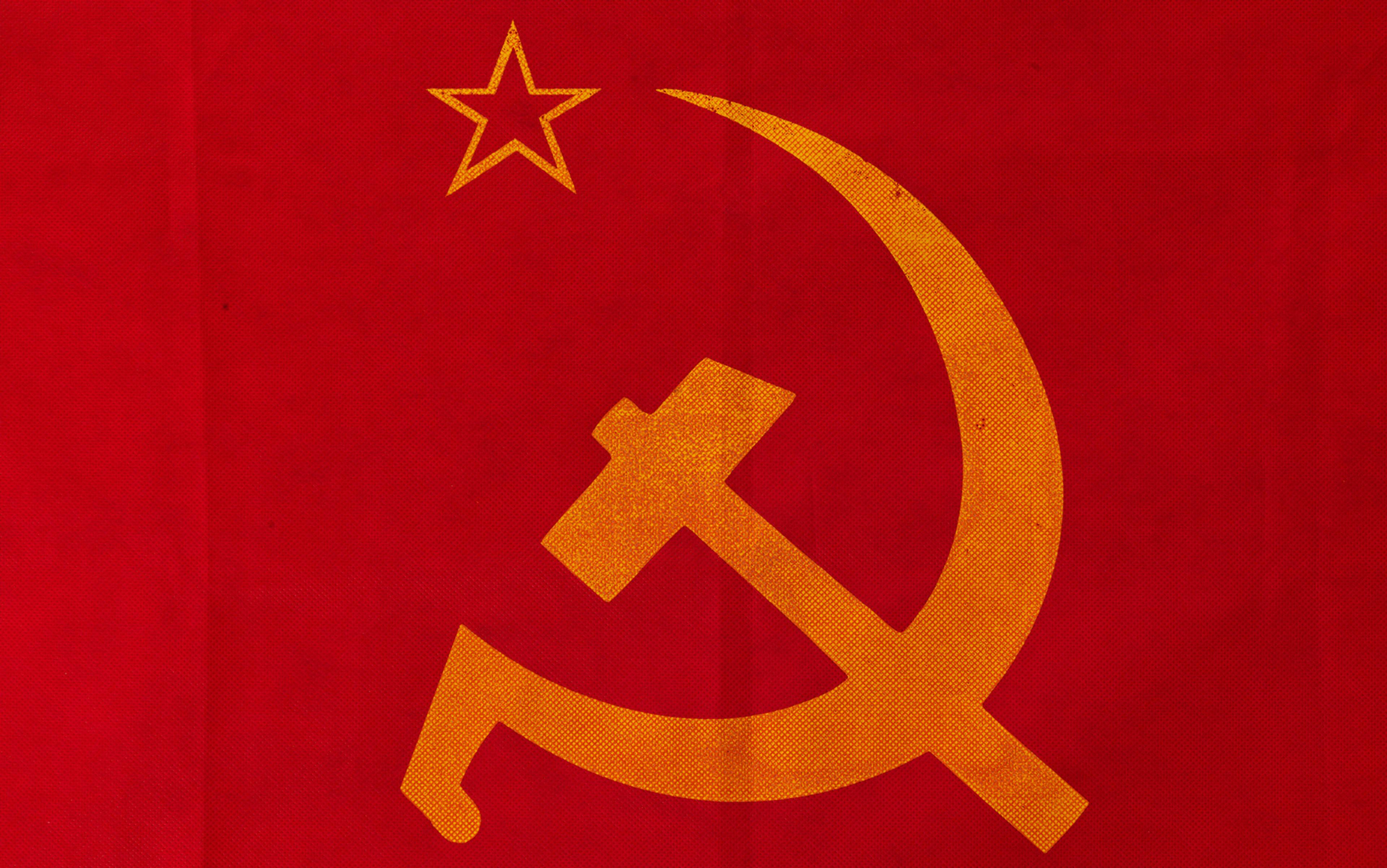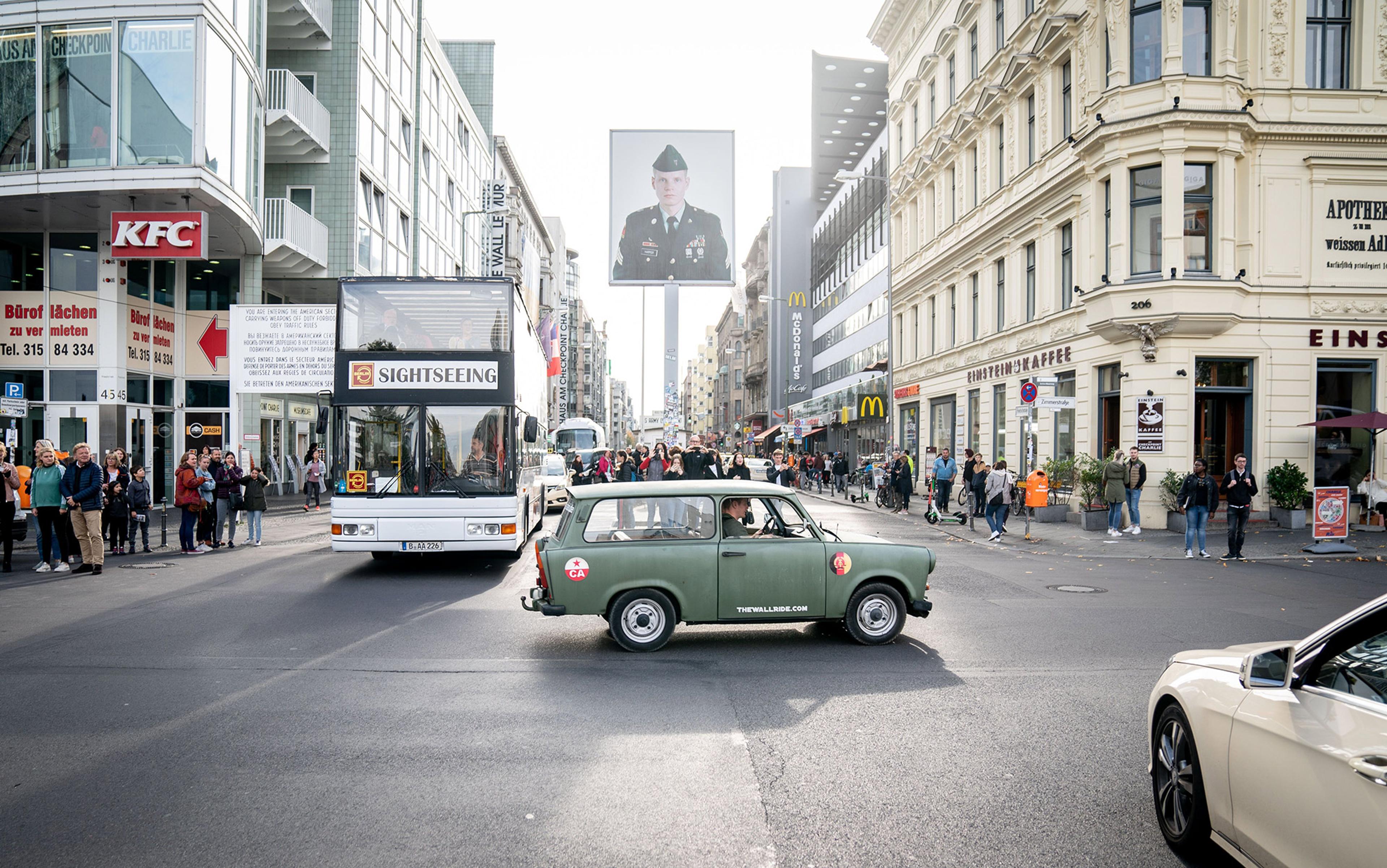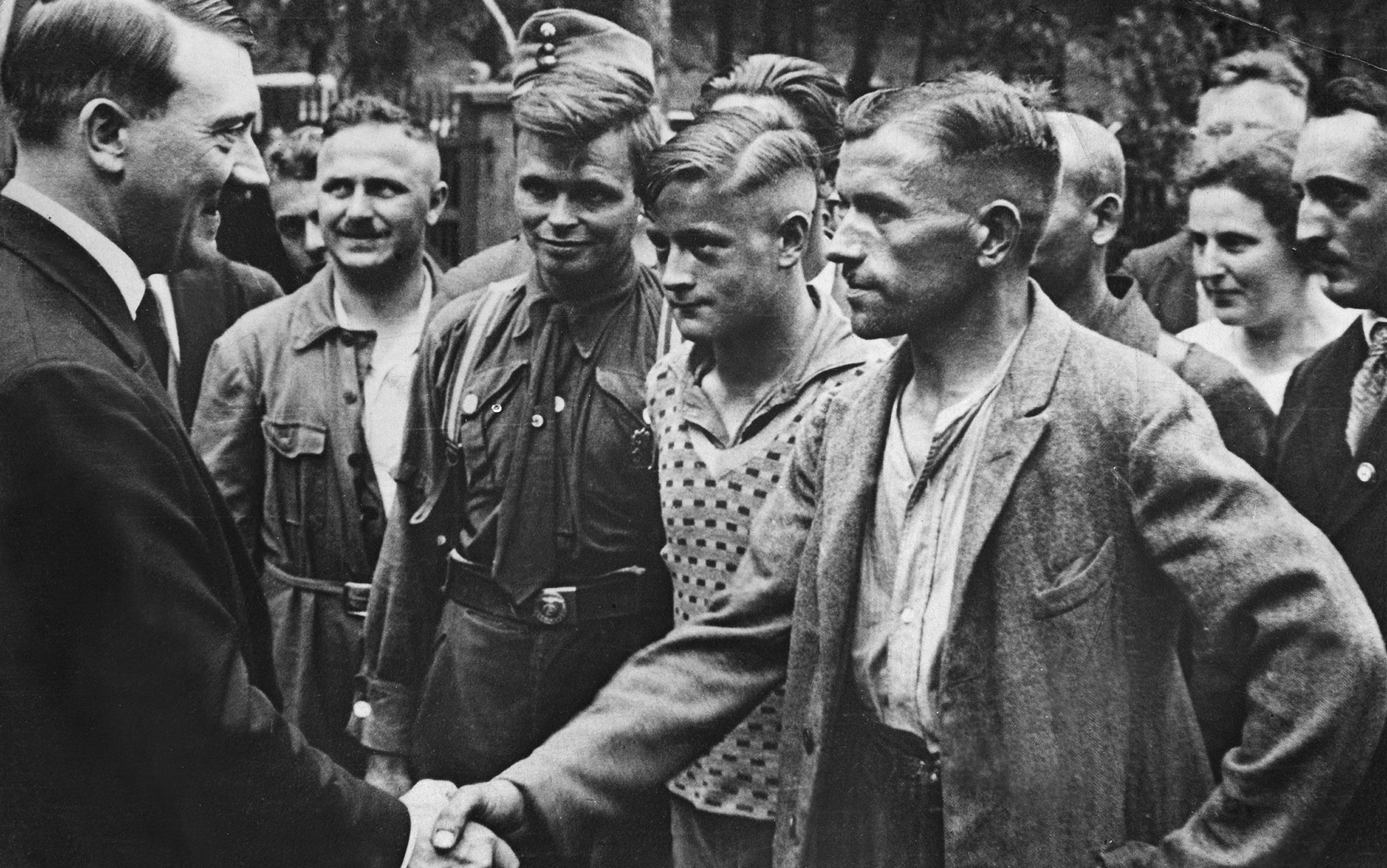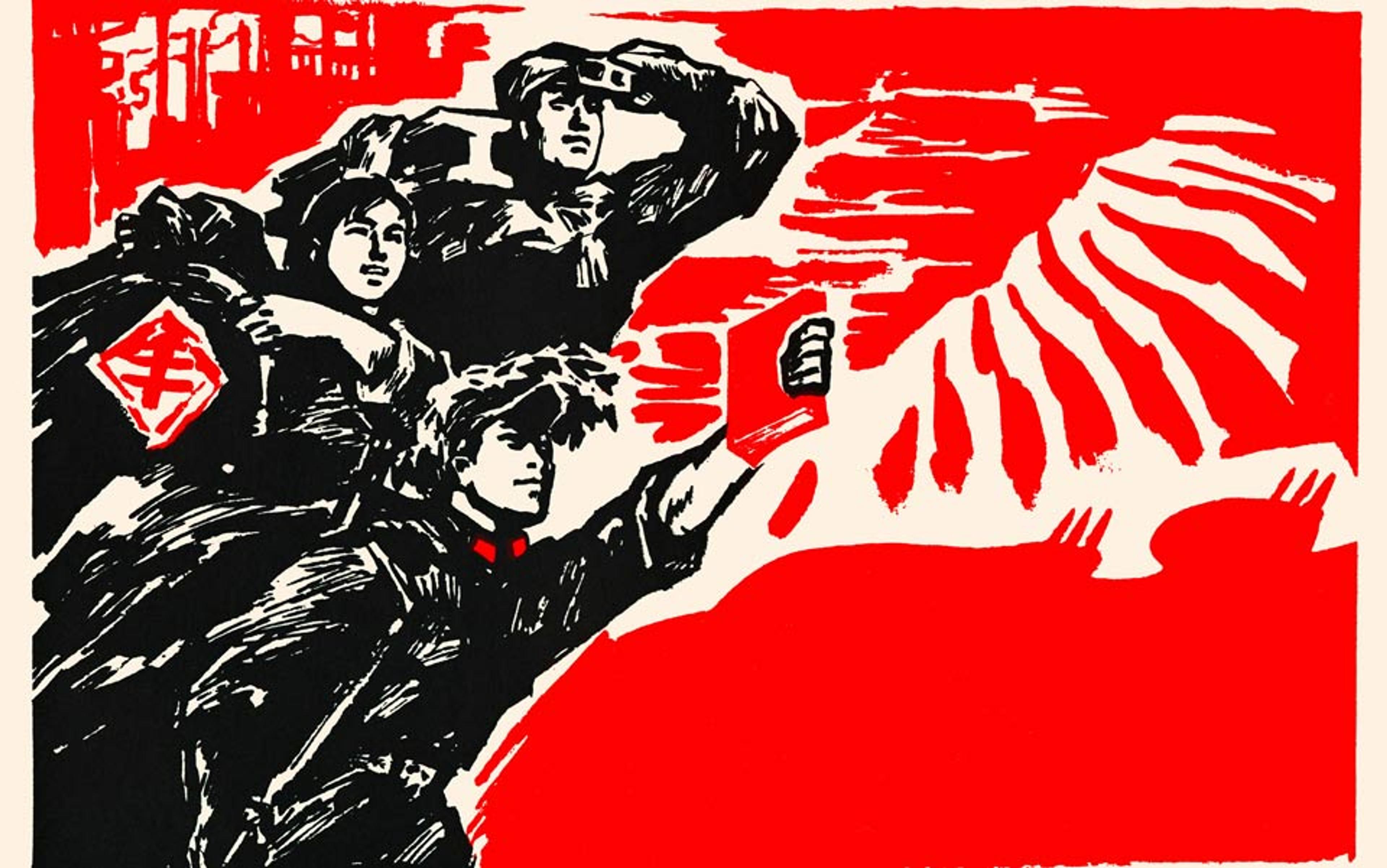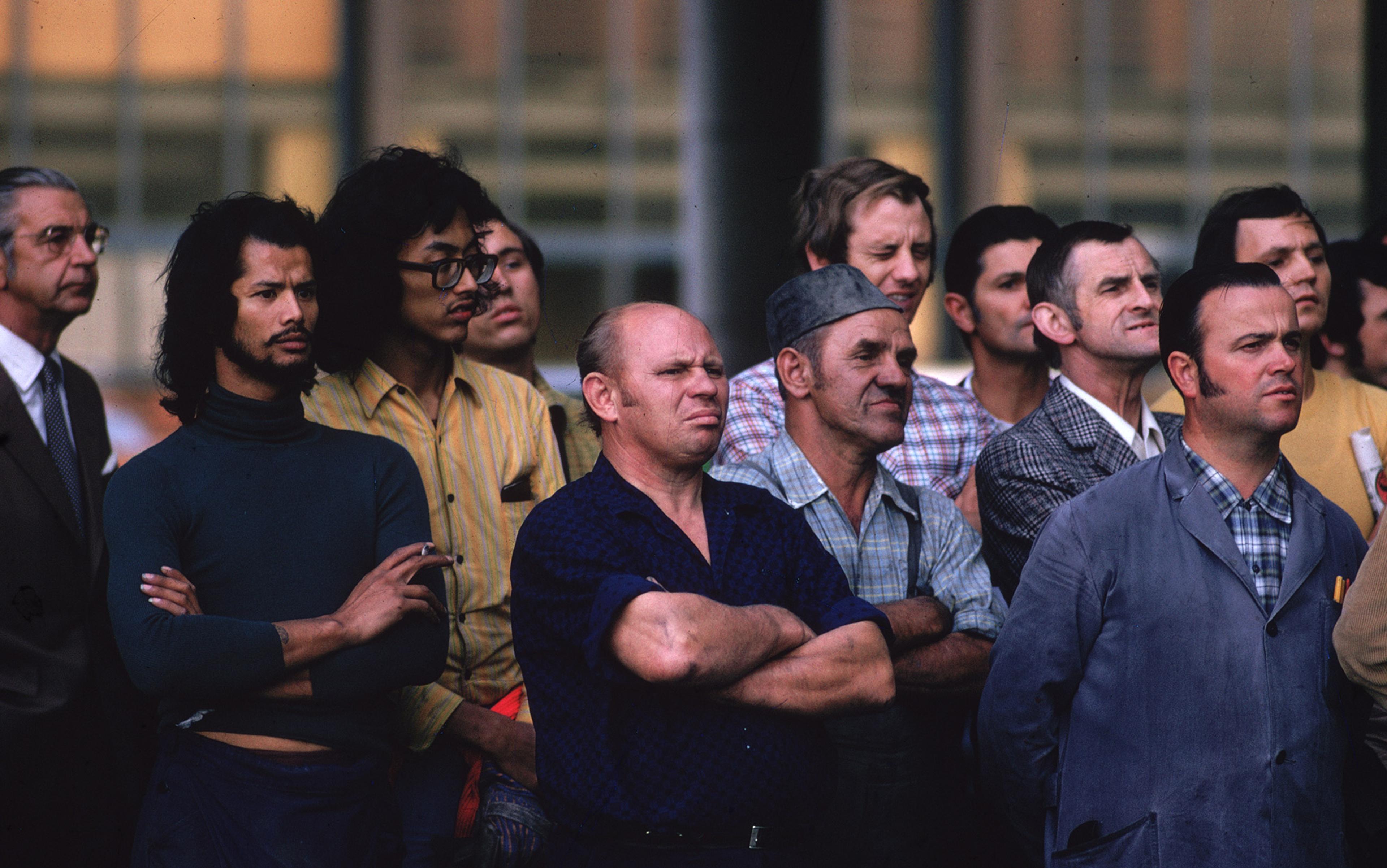‘[T]he people who struggle against what we call totalitarian regimes cannot function with queries and doubts. They, too, need certainties and simple truths to make the multitudes understand, to provoke collective tears.’
Milan Kundera, The Unbearable Lightness of Being (1984)
The public memory of 20th-century communism is a battleground. Two ideological armies stare at each other across a chasm of mistrust and misunderstanding. Even though the Cold War ended almost 30 years ago, a struggle to define the truth about the communist past has continued to rage across the United States and Europe.
On the Left stand those with some sympathy for socialist ideals and the popular opinion of hundreds of millions of Russian and east European citizens nostalgic for their state socialist pasts. On the Right stand the committed anti-totalitarians, both east and west, insisting that all experiments with Marxism will always and inevitably end with the gulag. Where one side sees shades of grey, the other views the world in black and white.
Particularly in the US, labour supporters and social liberals who desire an expanded role for the state hope to save the democratic socialist baby from the authoritarian bathwater. Fiscal conservatives and nationalists deploy memories of purges and famines to discredit even the most modest arguments in favour of redistributive politics.
For those wishing to paint 20th-century communism as an unmitigated evil, ongoing ethnographic and survey research in eastern Europe contradicts any simple narrative. Even as early as 1992, the Croatian journalist Slavenka Drakulić ‘worried about what would happen to all the good things that we did have under communism – the medical care, the year’s paid maternity leave, free abortion’. As governments dismantled social safety nets and poverty spread throughout the region, ordinary citizens grew increasingly less critical of their state socialist pasts.
A 2009 poll in eight east European countries asked if the economic situation for ordinary people was ‘better, worse or about the same as it was under communism’. The results stunned observers: 72 per cent of Hungarians, and 62 per cent of both Ukrainians and Bulgarians believed that most people were worse off after 1989. In no country did more than 47 per cent of those surveyed agree that their lives improved after the advent of free markets. Subsequent polls and qualitative research across Russia and eastern Europe confirm the persistence of these sentiments as popular discontent with the failed promises of free-market prosperity has grown, especially among older people.
In response, east European conservative and Right-wing governments have created museums, memorials and days of commemoration to honour the victims of communism. In 2008, conservative politicians signed the Prague Declaration on European Conscience and Communism to increase educational efforts about the crimes of communism, followed by the 2011 creation of the Platform of European Memory and Conscience, a consortium of organisations striving to promote their view of the 20th century in European history textbooks: a view that equates communism with Nazism, as one of two totalitarianisms.
In Poland and Ukraine, democratic governments have banned communist symbols, slogans and songs, and the Ukrainian government forced name changes on villages and towns with nomenclature that sounded too communist. In the most extreme case, the Ukrainians have legislated an official history about a recent past through which many present-day citizens have lived. If a journalist tries to discuss any positive aspects of life between 1917 and 1991, the law allows the government to shut down the newspaper, magazine or blog, and carries a potential prison sentence of five to 10 years. Free-market capitalism has not brought freedom of the press.
In October 2016, the Victims of Communism Memorial Foundation opened a new front in the battle for the public memory of communism when they mounted seven billboards in the heart of New York City. On his Twitter feed, the executive director Marion Smith wrote: ‘Our ads exposing the horrendous record of communist crimes just went up in Times Square.’ These billboards informed passers-by: ‘100 years, 100 million killed’; ‘Communism kills’; and ‘Today, 1 in 5 people live under a communist regime’.
About a year later, Bret Stephens’s op-ed ‘Communism Through Rose-Coloured Glasses’ in The New York Times attacked the insistence of the ‘progressive intelligentsia’ on distinguishing between Nazism and communism, and tarred the US senator Bernie Sanders and the UK Labour Party leader Jeremy Corbyn with the memory of Soviet atrocities.
Next, President Donald Trump declared that 7 November would be a National Day for the Victims of Communism. The official White House statement explained:
Over the past century, communist totalitarian regimes around the world have killed more than 100 million people and subjected countless more to exploitation, violence, and untold devastation. These movements, under the false pretence of liberation, systematically robbed innocent people of their God-given rights of free worship, freedom of association, and countless other rights we hold sacrosanct.
That there were real horrors is without doubt. But why the urgency to insist that the history of 20th-century communism is one of ‘untold devastation’? Are these belated responses to the global financial crisis, or delayed reactions to the electoral successes of Sanders and Corbyn? Or is it something else?
Of course, conservatives might insist that they are merely reminding people of the genuine flaws of communism, lest there be any tendency to fall towards that path. They argue that communism must be rejected in any form, for they fear that we might repeat the mistakes of the Soviet bloc. But given the extreme unlikeliness of the West’s return to communism in the 21st century, and the continuing nostalgia for state socialism in eastern Europe, it’s worth examining these anti-communist arguments closely.
Thoughtful observers should suspect any historical narrative that paints the world in black and white. In Thinking, Fast and Slow (2011), the Nobel-prize-winning psychologist Daniel Kahneman warns of predictable cognitive flaws that inhibit our ability to think rationally, including something called ‘the halo effect’:
The halo effect helps keep explanatory narratives simple and coherent by exaggerating the consistency of evaluations: good people do only good things and bad people are all bad … Inconsistencies reduce the ease of our thoughts and the clarity of our feelings.
Since nuance in the story of 20th-century communism might ‘reduce the ease of our thoughts and the clarity of our feelings’, anti-communists will attack, dismiss or discredit any archival findings, interviews or survey results recalling Eastern Bloc achievements in science, culture, education, health care or women’s rights. They were bad people, and everything they did must be bad; we invert the ‘halo’ terminology and call this the ‘pitchfork effect’. Those offering a more nuanced narrative than one of unending totalitarian terror are dismissed as apologists or useful idiots. Contemporary intellectual opposition to the idea that ‘bad people are all bad’ elicits outrage and an immediate accusation that you are no better than those out to rob us of our ‘God-given rights’.
In 1984, the anthropologist Clifford Geertz wrote that you could be ‘anti anti-communism’ without being in favour of communism:
Those of us who strenuously opposed the obsession, as we saw it, with the Red Menace were thus denominated by those who … regarded the Menace as the primary fact of contemporary political life, with the insinuation – wildly incorrect in the vast majority of cases – that, by the law of the double negative, we had some secret affection for the Soviet Union.
In other words, you could stand up against bullies such as Joseph McCarthy without defending Joseph Stalin. If we carefully analyse the arguments of those attempting to control the historical narrative of 20th-century communism, this does not mean that we are apologising for, or excusing the atrocities or the lost lives of millions of men and women who suffered for their political beliefs.
Their aim is not mere commemoration, but ‘a world free from the false hope of communism’
The Victims of Communism Memorial Foundation and other conservatives (we’ll call them the ‘anti-communists’) argue against communism by making two separable points: (1) a historical claim about people dying under communism that leads to (2) the conclusion that communism should be rejected as a political ideology.
When the Foundation’s executive director announced the billboards, contrarian Twitter users immediately asked: ‘And are you going to expose the horrendous record of slavery, murders, and all the capitalism crimes too?’ East Europeans suffering from the severe downturn in economic growth after 1989 might ask this same question. Ethnographic research on the persistence of red nostalgia shows that it has less to do with a wistfulness for lost youth than with a deep disillusionment with free markets. Communism looks better today because, for many, capitalism looks worse. But mentioning the possible existence of victims of capitalism gets dismissed as mere ‘whataboutism’, a term implying that only atrocities perpetrated by communists merit attention.
To properly understand the situation, let’s consider the argument today’s anti-communist campaigners more closely. They start with a historical premise – that regimes based on a communist ideology killed 100 million people. They then infer a conclusion: communism should be rejected. Their argument fails, for their historical premise is dubious, and their inference to the political conclusion is worse.
The source for this figure of 100 million people killed under communist regimes is Le Livre noir du communisme (1997), published in English as The Black Book of Communism (1999). In the introduction, the editor, Stéphane Courtois, used a ‘rough approximation, based on unofficial estimates’ to come up with a figure that approached 100 million, a number far greater than the 25 million victims he attributes to Nazism (which does not, conveniently, include those killed as a result of the Second World War). Courtois equated communism with Nazism, and argued that the ‘single-minded focus on the Jewish genocide’ had impeded the accounting of communist crimes.
Painting the communists as worse that the Nazis based on a questionable body count raises alarm bells
The Black Book stoked controversy from its first publication in France. As soon as it hit the shelves, two of the prominent historians contributing to the volume, Jean-Louis Margolin and Nicolas Werth, attacked Courtois in the pages of Le Monde. Margolin and Werth distanced themselves from the volume, believing that Courtois’s obsession with reaching the number of 100 million led to careless scholarship.
But quibbling about numbers is unseemly. What matters is that many, many people were killed by communist regimes. We could simply rephrase the anti-communist’s historical premise to read: states governed under a communist ideology did many horrible things.
However, now we turn to the second and more serious problem: the political conclusion does not logically follow from the historical point used as a premise. In philosophical terms, the argument is invalid. An implicit step is missing. By way of illustration, suppose one said: ‘Russian athletes are doping; therefore, Russian athletes should not be allowed in the Olympics.’ The premise does not entail the conclusion, for no connection is asserted between doping and who should or should not be allowed in the Olympics. One needs an intermediate step, perhaps something like: ‘Any athlete who is doping should not be allowed in the Olympics.’ Now the argument is valid, in the philosophical sense that its premises do at least imply its conclusion, though one might still reject one of the premises.
Similarly, in their argument, the anti-communists have not explicitly asserted any connection between countries doing horrible things and their ideology warranting rejection. This does not mean that the argument is hopeless, but it means that there is an implicit step missing. What is that step? Perhaps they would fill in the gap this way:
Historical point: countries that were based on a communist ideology did many horrible things.
General premise: if any country based on a particular ideology did many horrible things, then that ideology should be rejected
Political conclusion: communism should be rejected.
Now the conclusion follows logically from the premises, and the premises look plausible.
But the problem for the anti-communists is that their general premise can be used as the basis for an equally good argument against capitalism, an argument that the so-called losers of economic transition in eastern Europe would be quick to affirm. The US, a country based on a free-market capitalist ideology, has done many horrible things: the enslavement of millions of Africans, the genocidal eradication of the Native Americans, the brutal military actions taken to support pro-Western dictatorships, just to name a few. The British Empire likewise had a great deal of blood on its hands: we might merely mention the internment camps during the second Boer War and the Bengal famine.
This is not mere ‘whataboutism’, because the same intermediate premise necessary to make their anti-communist argument now works against capitalism:
Historical point: the US and the UK were based on a capitalist ideology, and did many horrible things.
General premise: if any country based on a particular ideology did many horrible things, then that ideology should be rejected
Political conclusion: capitalism should be rejected.
The obvious point: the anti-communism argument is no better (and no worse) than the anti-capitalism argument. Of course, the anti-communists are not going to agree that capitalism should be rejected. But unfortunately for them, the historical point is true: the US, the UK and other Western countries are based on a capitalist ideology, and have done many horrible things. The only way to deny the argument is by denying the general premise. But this is exactly the premise used in their own argument, so the anti-communism argument collapses.
To avoid this problem, they might try a different general premise:
General premise: if any country based on a particular ideology did horrible things, and if those horrible things are natural conclusions of the ideology, then that ideology should be rejected.
If this is the idea, however, they will need to revise the historical point as well, or otherwise the argument would no longer be valid. So we would have this:
Historical point: countries based on a communist ideology did many horrible things, and these things are natural conclusions of communism.
General premise: if any country based on a particular ideology did horrible things, and if those horrible things are natural conclusions of the ideology, then that ideology should be rejected.
Political conclusion: communism should be rejected.
But now there is an analogous argument against capitalism:
Historical point: the US and the UK were based on a capitalist ideology, they did many horrible things, and these things are natural conclusions of capitalism.
General premise: if any country based on a particular ideology did horrible things, and if those horrible things are natural conclusions of the ideology, then that ideology should be rejected.
Conclusion: capitalism should be rejected.
Both arguments are valid, and the shared general premise is plausible. The defender of capitalism might protest that the historical point is not true: nobody should think that a belief in free markets naturally entails that internment camps or slavery are okay; such things are a perversion of the ideals of any reasonable capitalism.
Members of Ukrainian paramilitary groups that fought with the Nazis against the Red Army are now heroes
Fair enough. We will grant for the sake of argument that slavery and the rest do not follow from the principles of Adam Smith and David Ricardo. But the historical point in the anti-communism argument is equally dubious. Where, for example, in the writings of Karl Marx and Friedrich Engels does one find that leaders should deliberately induce mass starvation or purges?
By contrast with both capitalism and communism, many of the most grotesque crimes of Nazism were natural conclusions of their racist ideology. Nazi doctrine elevated German Aryans above all other races, particularly Jews. The Second World War was an outcome of the Nazi ideal of Lebensraum, and the Holocaust a direct application of Nazi racial doctrines. The revised general premise does lead from historical facts about the crimes of Nazism to the uncontested conclusion that Nazism should be rejected.
So far, we have been labouring to make what is – to those trained in logic at least – an obvious point: the rhetoric of the anti-communists does not amount to a successful argument. We therefore should consider the possibility that the anti-communists are not trying to make an argument; perhaps they are not trying to give reasons. Maybe they are simply appealing to emotion, hoping that the ‘pitchfork effect’ will make it easy for them to render communism all bad all the time. But why? And why now?
Here it is especially important to pay heed to lessons from eastern Europe. In that context, public commemoration of the victims of communism has served both to allay rising criticisms of capitalism and to exonerate local histories of Right-wing nationalism. By law, members of Ukrainian paramilitary groups that fought with the Nazis against the Red Army in the Second World War are now heroes of Ukrainian independence. Might renewed anti-communist feeling also serve right-wing nationalism in the US and western Europe?
When Trump attributed blame to ‘both sides’ for the Charlottesville violence in August 2017, many Americans baulked at the idea that ordinary people protesting white supremacy be designated the moral equivalent of neo-Nazis. But this was no accident on Trump’s part. Right-wing nationalists have a good reason to construct a looming godless bogeyman threatening to take away our freedoms. A similar rhetoric can be found in Germany where the government has recently begun to equate the far-Right hooliganism of the neo-Nazis with the increasingly powerful Antifa movement, shutting down the website responsible for organising the massive G20 protests in August 2017, and attempting to silence what they called ‘vicious Left-wing extremists in Germany’.
Defenders of the status quo stop at nothing to convince young voters about the evils of collectivist ideas
Conservative and nationalist political leaders in the US and across Europe already incite fear with tales of the twin monsters of Islamic fundamentalism and illegal immigration. But not everyone believes that immigration is a terrible threat, and most Right-wing conservatives don’t think that Western countries are at risk of becoming theocratic states under Sharia law. Communism, on the other hand, provides the perfect new (old) enemy. If your main policy agenda is shoring up free-market capitalism, protecting the wealth of the superrich and dismantling what little is left of social safety nets, then it is useful to paint those who envision more redistributive politics as wild-eyed Marxists bent on the destruction of Western civilisation.
What better time to resurrect the spectre of communism? As youth across the world become increasingly disenchanted with the savage inequalities of capitalism, defenders of the status quo will stop at nothing to convince younger voters about the evils of collectivist ideas. They will rewrite history textbooks, build memorials, and declare days of commemoration for the victims of communism – all to ensure that calls for social justice or redistribution are forever equated with forced labour camps and famine.
Responsible and rational citizens need to be critical of simplistic historical narratives that rely on the pitchfork effect to demonise anyone on the Left. We should all embrace Geertz’s idea of an anti-anti-communism in hopes that critical engagement with the lessons of the 20th century might help us to find a new path that navigates between, or rises above, the many crimes of both communism and capitalism.
